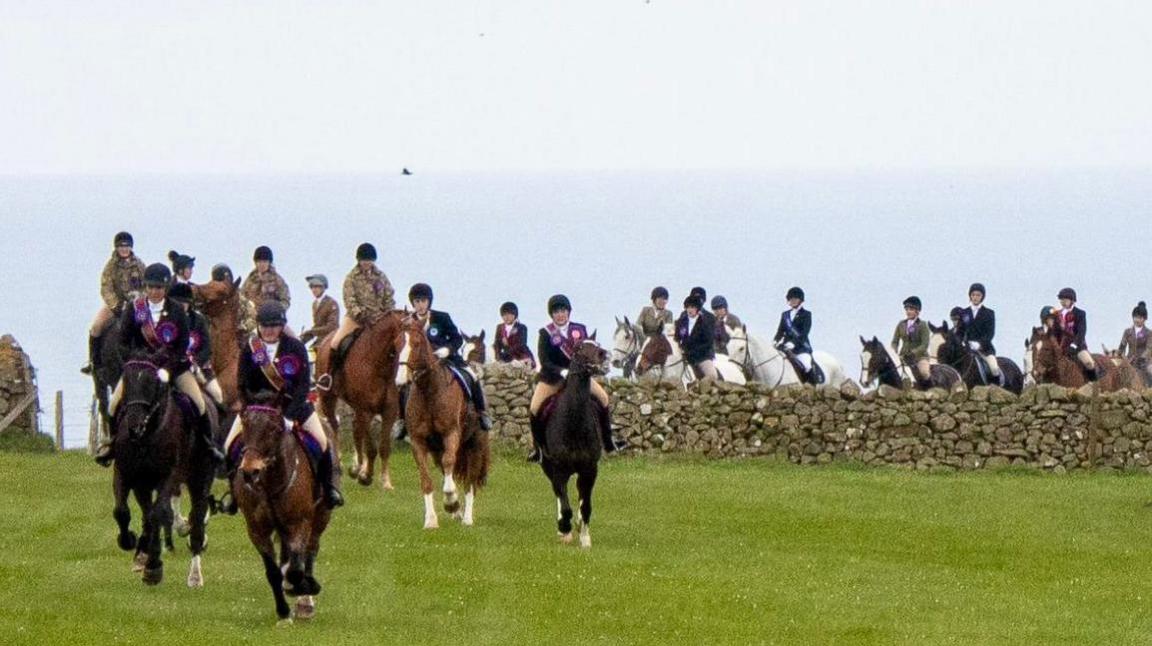'We're caught between two countries and forgotten'
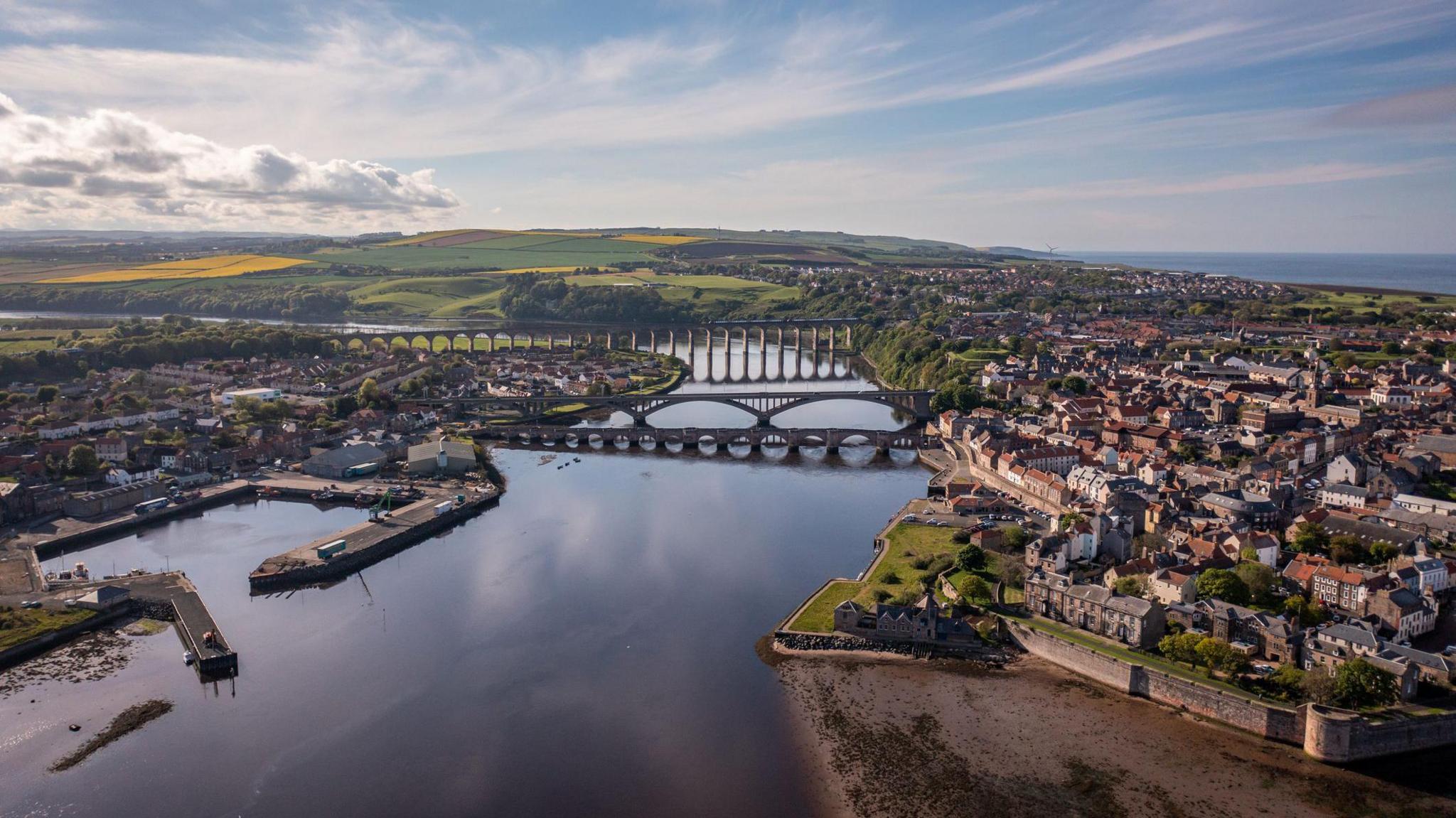
Berwick-upon-Tweed is England's most northerly town and a gateway to the Scottish border
- Published
Just a few miles from the Scottish border and nestled on the windswept Northumberland coast, Berwick-upon-Tweed is England's most northerly town. While its centuries-old past is littered with blood-soaked power struggles, voters living here today are hopeful they will not be cast aside by whoever grasps electoral victory in July.
Surrounded by defensive walls, its team plays in the fifth tier of Scottish football and there are branches of Scottish banks along the high street. But this is England and, in Berwick, it is easy to see how history influences the town today.
With a general election looming, those living here are keen to be heard.
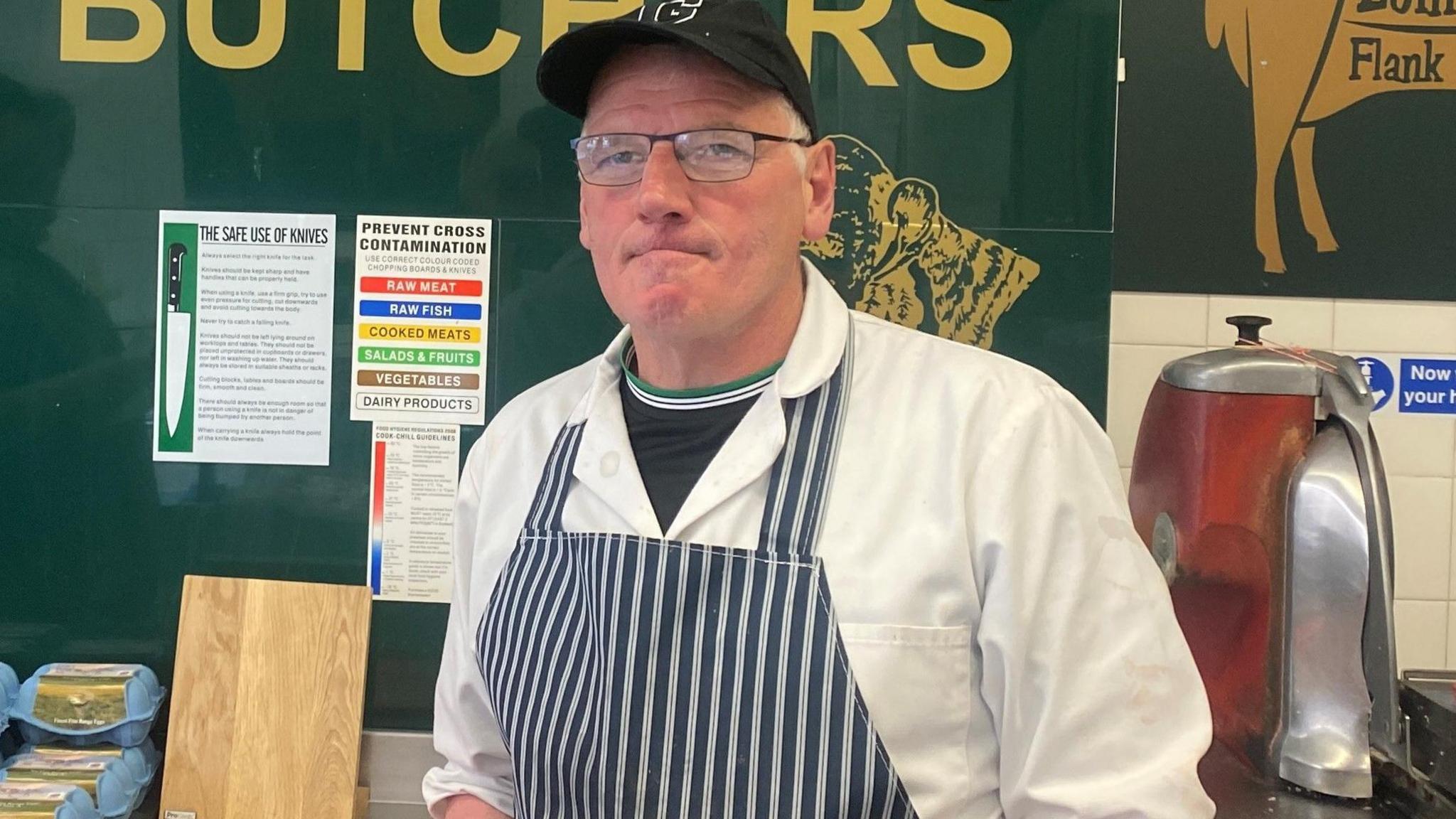
Gerard Gill was born in Edinburgh but has lived in Berwick since he was a boy
Butcher Gerard Gill is typical of that dual identity.
He was born in Edinburgh and considers himself Scottish, but has lived in Berwick most of his life.
"We're caught between two countries and it sometimes feels like we're forgotten," he says.
"There's so much history here, we should have more visitors but there's nothing for the youth, and we're 60 miles away from a proper hospital."
One of his regular customers is 85-year-old Dorothy Wakenshaw.
She grew up in the Scottish village of Burnmouth but moved to Berwick in 1959 when she married.
She also worries about health facilities in the town.
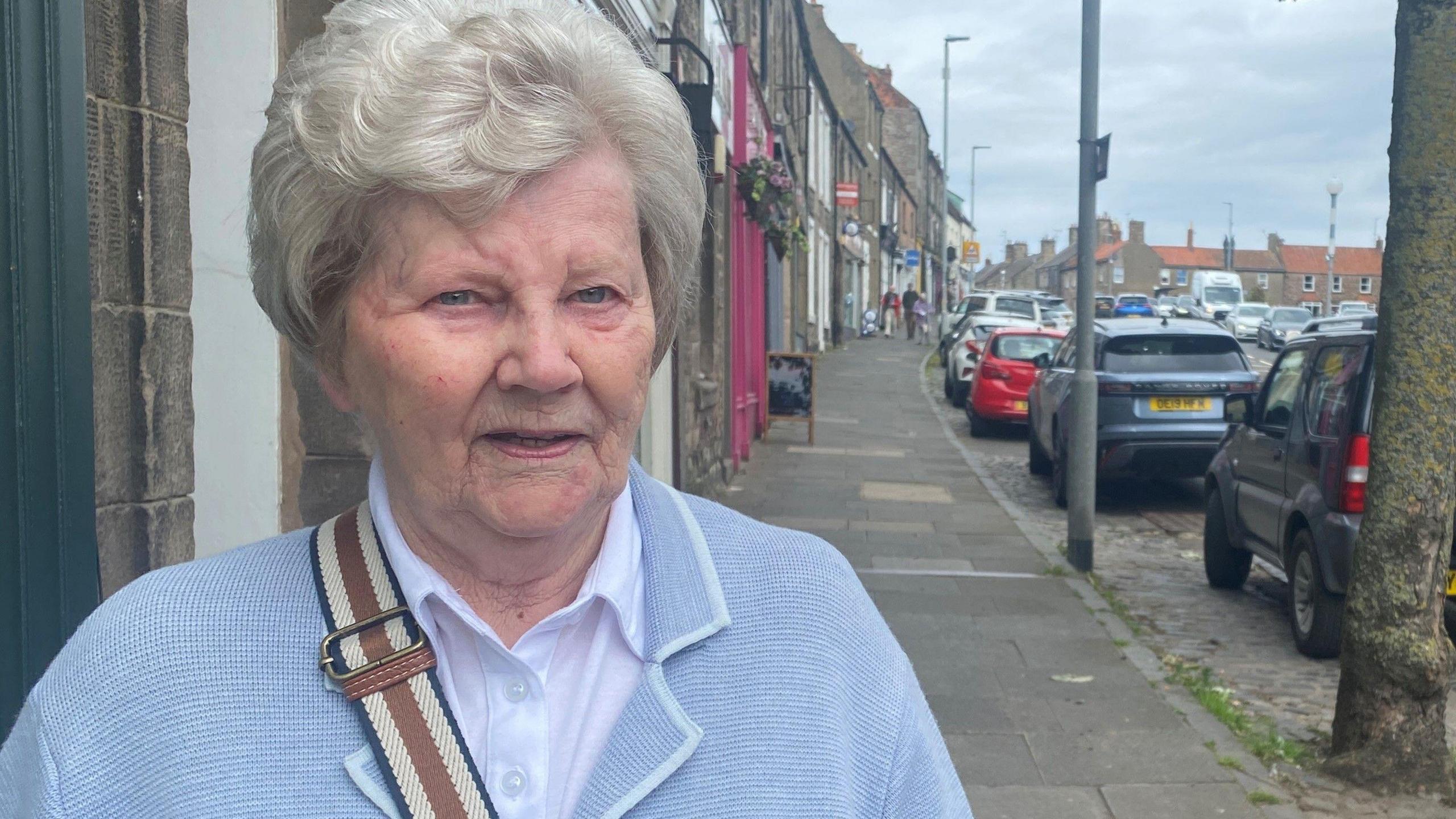
Dorothy Wakenshaw, born on Tyneside, considers herself English although she was brought up in the Scottish village of Burnmouth
"We've got an infirmary, fair enough, but it's for minor things," she says.
After a fall at home, she was taken straight down to hospital in Cramlington, Northumberland.
"Sixty miles is a long way to go if you're not well," she says.
But like many in Berwick, she would not live anywhere else.
"This is a lovely place to live, we have the sea, we have the hills, we have the town walls, and so much history."
Once known as the "Alexandria of the North", the town changed hands between England and Scotland 13 times over the years, with the power struggle continuing until 1482.
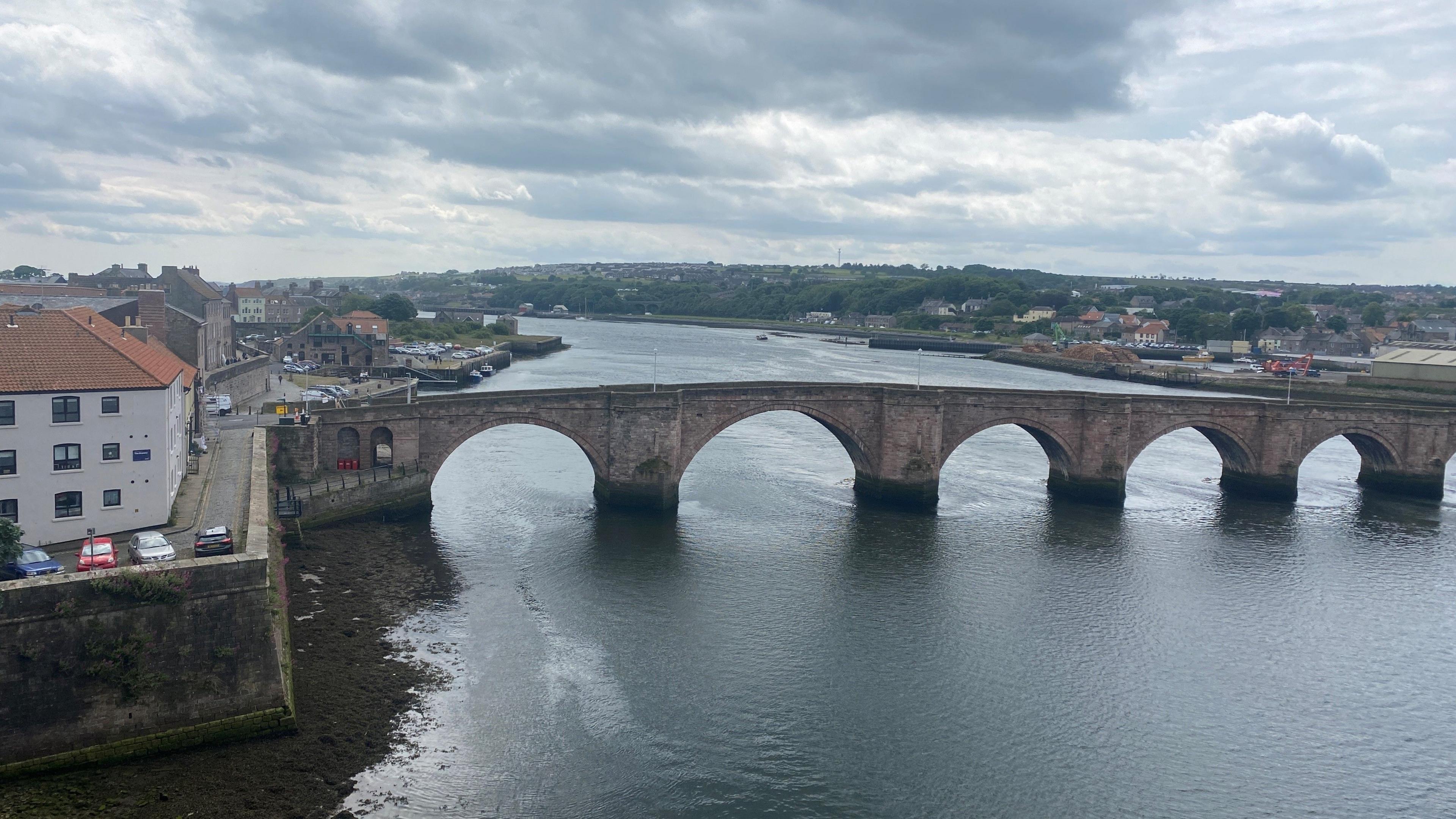
Berwick Bridge was built after King James VI of Scotland passed through in 1603 and was unimpressed by the existing wooden bridge
The Grade I listed Elizabethan walls stand as a testament to that turbulent history and they are among the best-preserved in Europe.
Kate Watson, 56, often walks there with her dog Willow.
She moved to Berwick four years ago so her husband could be closer to his family but, as a trained radiotherapist, that has made finding work difficult.
"Edinburgh and Newcastle, where there are big hospitals, are just too far for me to travel really so I currently have a temporary job in a supermarket," she says.
"In some ways Berwick feels well-connected because it's on the A1 and the East Coast Main Line, but in other ways it feels like a frontier town."
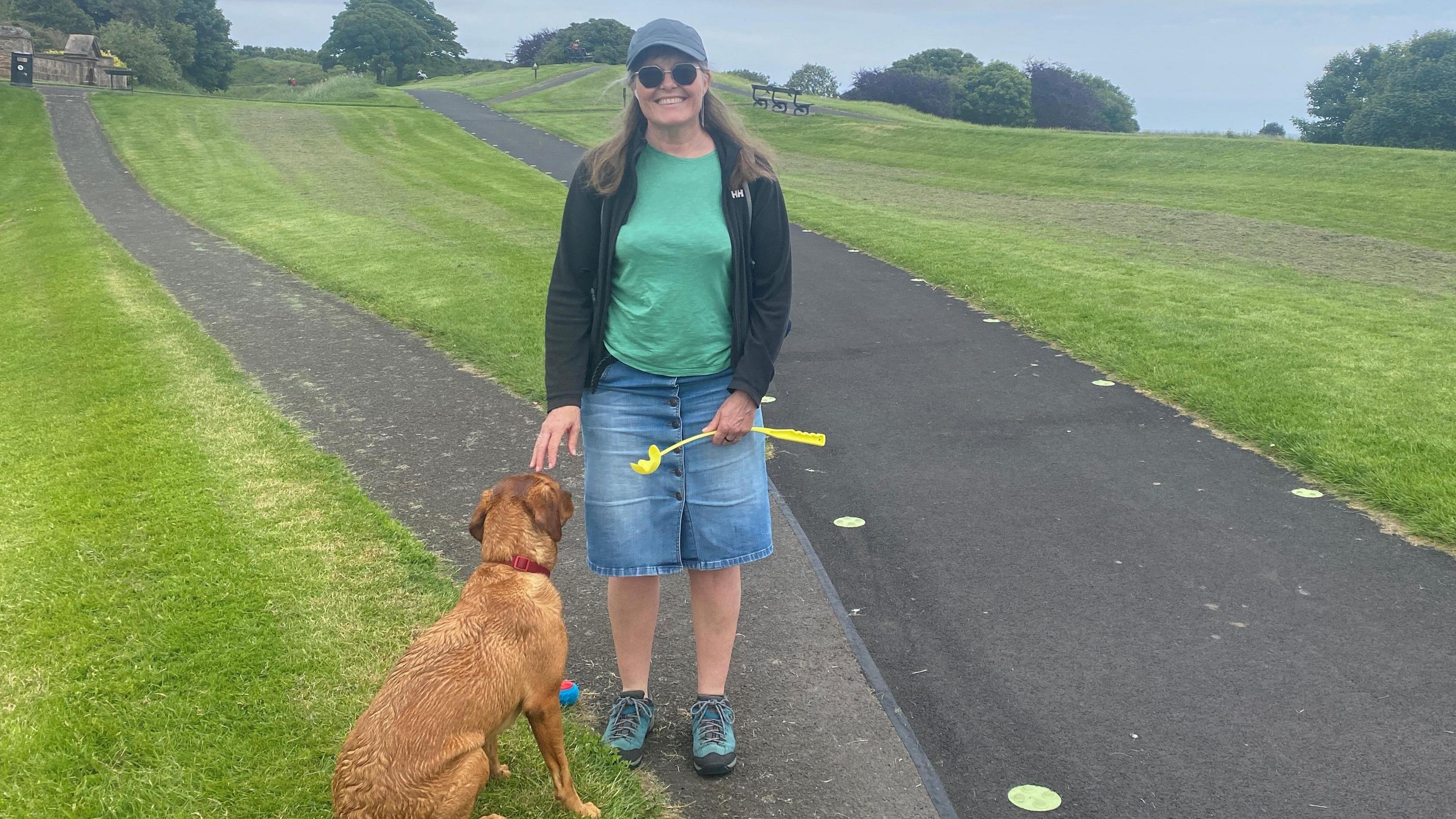
Kate Watson is a radiotherapist but is working in a supermarket temporarily
She says she has not been able to find a dentist and has to make a 100-mile (161km) round trip to Bedlington.
"The NHS is a real challenge too," she adds.
"OK, they're building a new hospital but it's not going to be that much bigger than what was there before."
But, as she looks out across the North Sea, Kate says she has no regrets about moving here.
"Walking out of the door and having about 10 different places I can walk Willow is wonderful, living close to the sea is amazing and Northumberland is just so very beautiful, the skies are just endless."
New constituency name
Just as Berwick has been held by two countries, it is part of a parliamentary constituency which has flipped between two parties - the Liberals (now Liberal Democrats) and the Conservatives.
Rural in nature and population, and with agriculture as a major source of employment, it has never elected a Labour candidate.
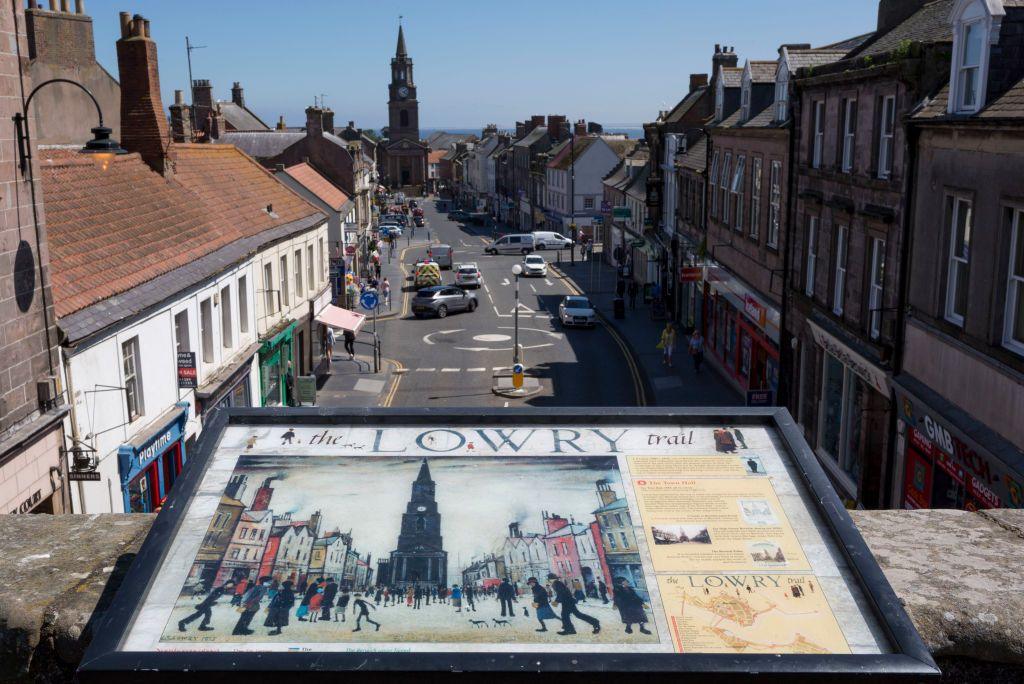
LS Lowry visited Berwick many times from the mid-1930s, and an exhibition of his work is on display at The Maltings arts centre until October
It has elected two well-known politicians - Sir William Beveridge, who was influential in the formation of the NHS, and Edward Grey, foreign secretary at the start of World War One, best remembered for the remark "lamps are going out all over Europe".
It was represented by Liberal Democrat Sir Alan Beith from 1973 until his retirement in 2015, when it was gained by Conservative Anne-Marie Trevelyan.
In 2019, she increased her majority to 14,835.
Due to boundary changes, the seat has been renamed North Northumberland but with only small changes to its area, external.
Mum-of-two Cheryl Gill has already made her mind up which way her vote is going.
Born and bred in Berwick, she is proud of its "lovely, friendly people" but thinks it needs investment.
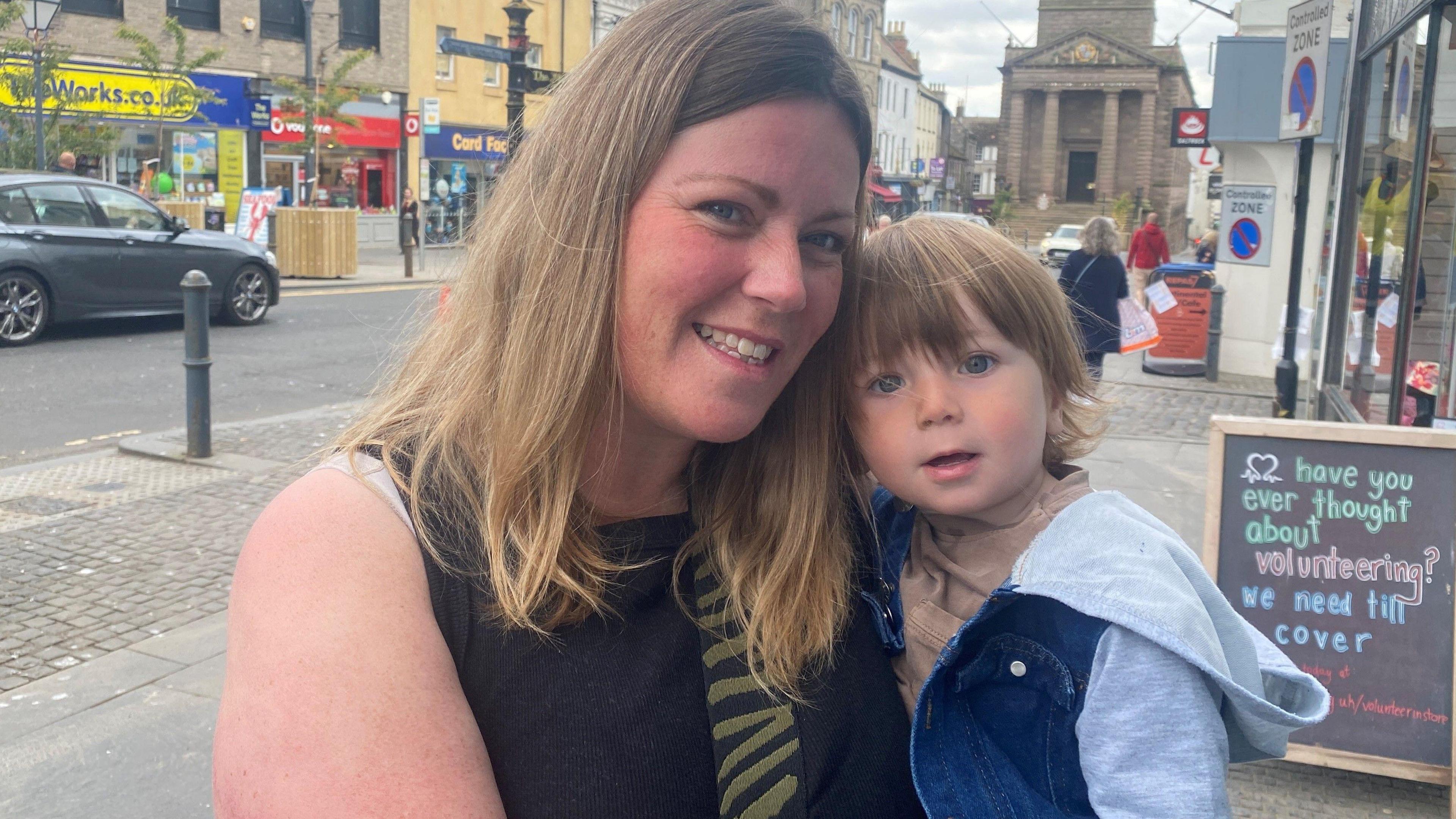
Cheryl Gill says she would like to see more facilities for her young son
Speaking on the high street, she says she is sad The Works, a shop which sells crafting material, is closing.
"We're just devastated," she says. "My little one loves it and there really doesn't seem to be anything on the high street any more.
"I'd really like to see the A1 dualled, for safety and stuff when we go down to Newcastle. They say it's going to happen but I don't know if it ever will."
On the Royal Tweed Bridge, Diane Youll is walking back to her car from an eye appointment.
Three years ago, she moved to nearby Norham, a village on the section of the river which forms the border between England and Scotland.
One issue important to her is more social housing.
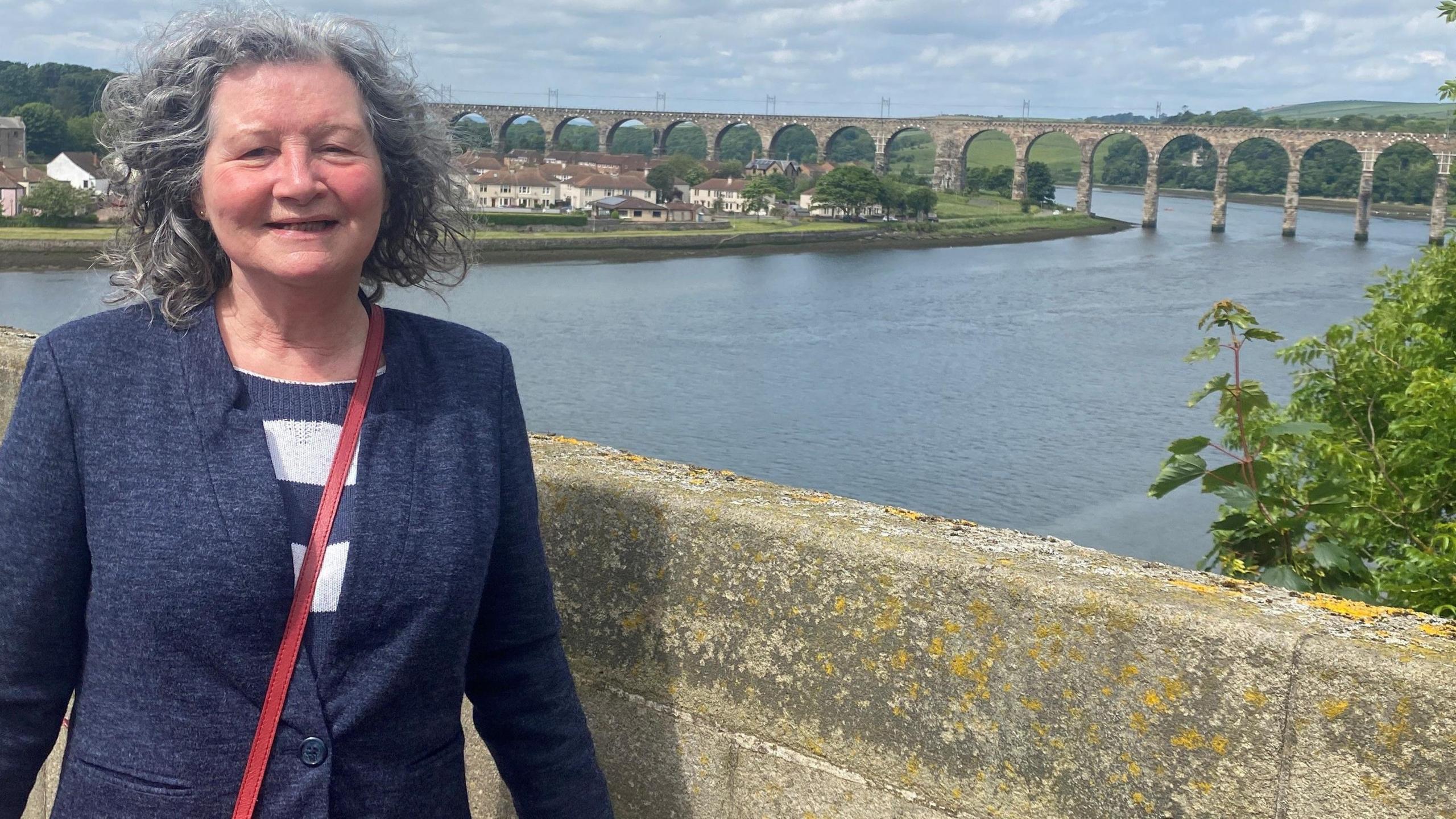
Diane Youll is worried about public transport, and her daughter lives in a village with no bus services
"It's extremely expensive to buy and to rent, and it's pushing young people away," she says.
"The NHS is a problem too, I've had to go to Kelso in Scotland to get a dentist."
She thinks Berwick is "doing OK" but is worried about the number of empty shops in the town centre.
"Considering just how beautiful it is, and how much history there is here, I think Berwick has been overlooked for too long."
Full list of candidates for the North Northumberland constituency:
Katherine Hales - Reform UK
Georgina Hill - Independent
Michael Joyce - Independent
Andrew Martin - SDP
Jan Rosen - Green
David Smith - Labour
Anne-Marie Trevelyan - Conservative
Natalie Younes - Liberal Democrats

Follow BBC North East on X (formerly Twitter), external, Facebook, external and Instagram, external. Send your story ideas to northeastandcumbria@bbc.co.uk.
Related topics
More stories from BBC North East and Cumbria
- Published22 January 2022
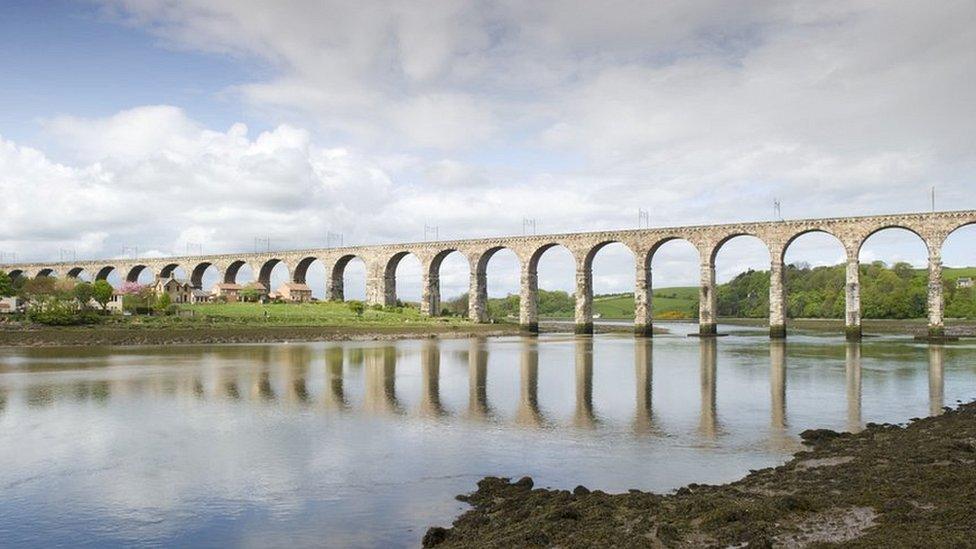
- Published7 November 2021
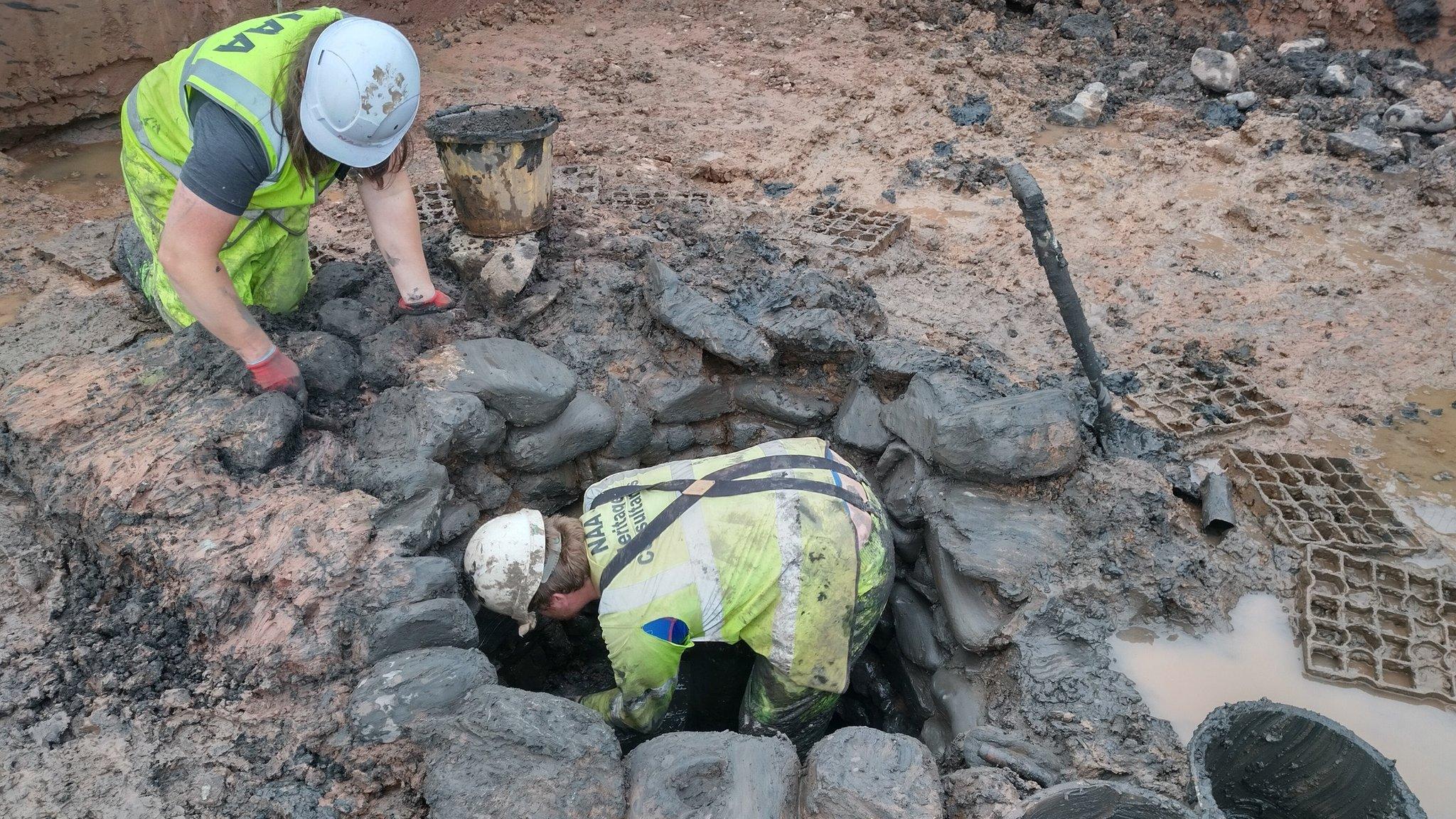
- Published25 May 2024
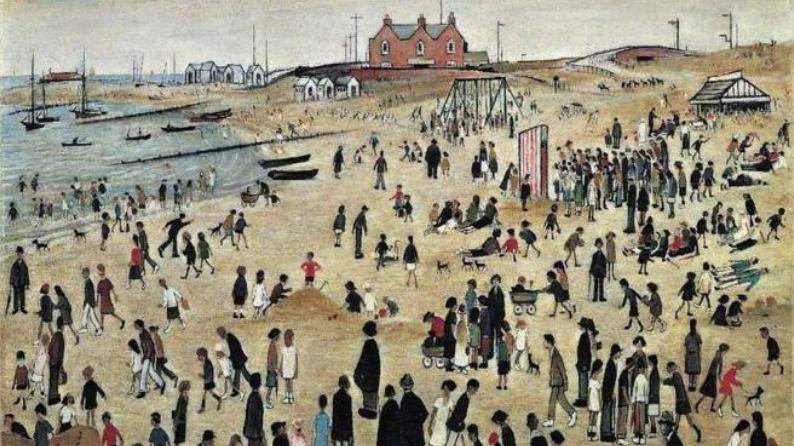
- Published2 December 2020
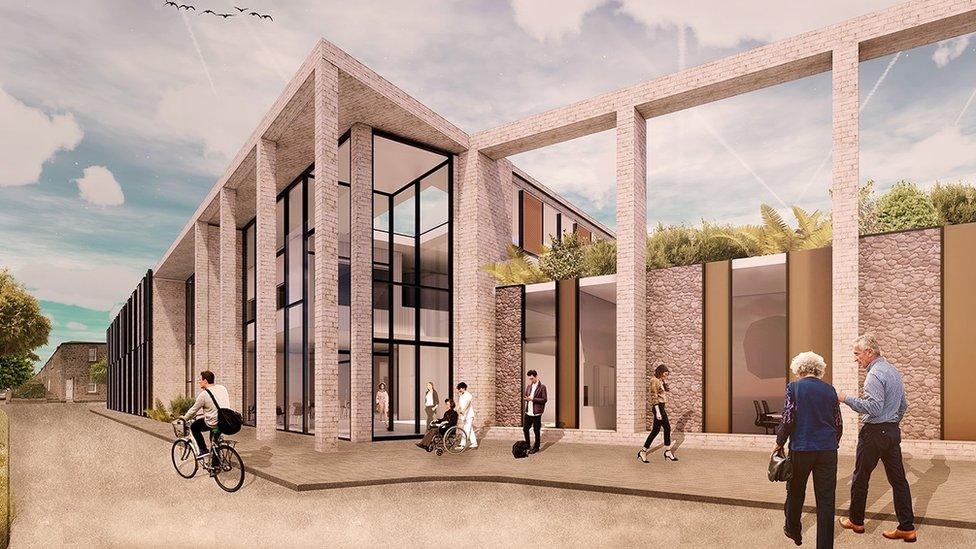
- Published4 May 2024
